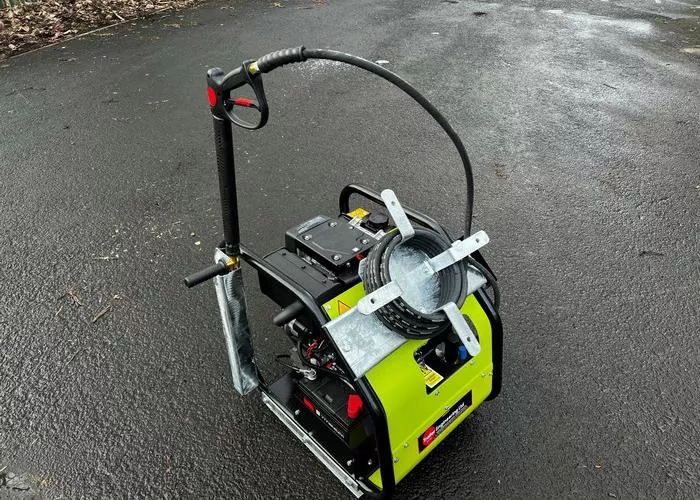Pressure washers are powerful tools widely used for cleaning various surfaces, from driveways and sidewalks to vehicles and buildings. While they offer undeniable benefits in terms of efficiency and effectiveness, there are also several drawbacks associated with their use. This article explores six disadvantages of using a pressure washer, providing insights into potential risks and considerations before investing in or operating one.
1. Potential for Surface Damage
One of the biggest drawbacks of using a pressure washer is the risk of damaging surfaces. The high-pressure water stream can be too powerful for certain materials, leading to issues such as:
Wood Splintering: Wooden surfaces, such as decks and fences, can splinter if exposed to excessive pressure.
Paint Stripping: If not used carefully, a pressure washer can remove paint from walls, vehicles, and other painted surfaces.
Concrete and Brick Erosion: Over time, frequent pressure washing can erode concrete, brick, and mortar, weakening structural integrity.
Vehicle Damage: Car paint, trim, and even sensitive engine components can be damaged if pressure is too high or the nozzle is held too close.
To prevent damage, it’s crucial to select the right pressure setting and nozzle type for each surface.
2. High Water Consumption
Pressure washers use a significant amount of water, which can be a major disadvantage in areas with water restrictions or conservation concerns. While they are more efficient than traditional hoses in some cases, they still consume large volumes of water, typically between 1.5 to 4 gallons per minute (GPM). Over time, this can lead to:
Higher Utility Bills: Frequent use of a pressure washer can substantially increase water costs.
Environmental Impact: Excessive water usage contributes to wastage and can strain local water resources, especially in drought-prone regions.
Using a pressure washer responsibly, such as opting for models with adjustable flow rates or using water recycling systems, can help mitigate this issue.
3. Risk of Injury
The powerful spray from a pressure washer can pose serious safety risks to the user and bystanders. Common injuries include:
Lacerations and Burns: High-pressure water can cut through the skin, causing deep wounds or burns.
Eye Injuries: If debris or water spray enters the eyes, it can cause severe irritation or permanent damage.
Slips and Falls: The force of the water can create slippery surfaces, increasing the risk of accidents.
Kickback Force: Higher-powered pressure washers produce significant recoil, which can lead to loss of control, especially for inexperienced users.
Proper safety gear, including gloves, goggles, and protective clothing, is essential when operating a pressure washer.
4. Noise Pollution
Pressure washers are loud machines, with noise levels ranging from 70 to 100 decibels (dB), depending on the model and power source. The high noise levels can lead to:
Hearing Damage: Prolonged exposure to noise over 85 dB can cause hearing loss.
Disturbance to Neighbors: Residential areas may have noise regulations, and excessive noise can be a nuisance to others.
Workplace Disruptions: If used in commercial or industrial settings, the noise may interfere with communication and productivity.
Using quieter electric models instead of gas-powered ones and wearing hearing protection can help mitigate this disadvantage.
5. High Initial and Maintenance Costs
While pressure washers can save time and effort, they are not always cost-effective. The total expenses associated with purchasing and maintaining a pressure washer include:
Initial Purchase Price: A quality residential pressure washer can cost anywhere from $100 to $500, while industrial models can exceed $2,000.
Ongoing Maintenance: Regular upkeep is required, including oil changes (for gas models), nozzle replacements, hose inspections, and pump servicing.
Repair Costs: Parts like seals, pumps, and hoses wear out over time, leading to potential repair expenses.
Detergent and Accessories: Some cleaning tasks require special detergents, brushes, and surface cleaners, adding to the cost.
For those who only need occasional cleaning, renting a pressure washer instead of purchasing one might be a more economical option.
6. Environmental Concerns
Beyond water consumption, pressure washers can have negative environmental impacts, including:
Chemical Runoff: Many cleaning solutions contain harsh chemicals that, when washed away, can contaminate soil and water bodies.
Air Pollution (Gas-Powered Models): Gasoline-powered pressure washers emit carbon monoxide and other pollutants, contributing to air pollution and harming the environment.
Wastewater Disposal Issues: The runoff from pressure washing often contains dirt, oil, grease, and other pollutants that can affect local ecosystems if not properly managed.
To reduce environmental harm, users can opt for biodegradable detergents, use electric models, and ensure wastewater is directed away from storm drains.
Conclusion
While pressure washers offer undeniable benefits in terms of cleaning efficiency, they also come with notable disadvantages. The risk of surface damage, high water consumption, potential for injury, noise pollution, maintenance costs, and environmental concerns are all factors to consider before using one. By understanding these drawbacks and taking the necessary precautions, users can make informed decisions and minimize the risks associated with pressure washing.

